

Tensions remain high in Cuba on Monday (July 12), after thousands took to the streets to decry living conditions in the Spanish-speaking Caribbean country.
Cuba, reeling under the relentless effect of economic sanctions imposed by the United States in the Trump Administration era, is experiencing a white-hot coronavirus (COVID-19) outbreak and ranks as the worst-hit country in the region.
The double whammy has, in turn, exacerbated food and medicine shortages and power cuts across much of the island, as the communist government struggles to keep itself afloat.
Amid reports of violent protests sweeping many Cuban cities and the trending #SOSCuba hashtag on Twitter, the Biden Administration slammed its Miguel Díaz-Canel counterpart.
Scores of demonstrators bore signs alleging many are poor and hungry, pleading with the US and its military might to intervene in the Cuban crisis.
Several buildings were damaged and arrests made in the biggest anti-government demonstrations since the 1990s. Protesters chanted “freedom” and called for Díaz-Canel to step down.
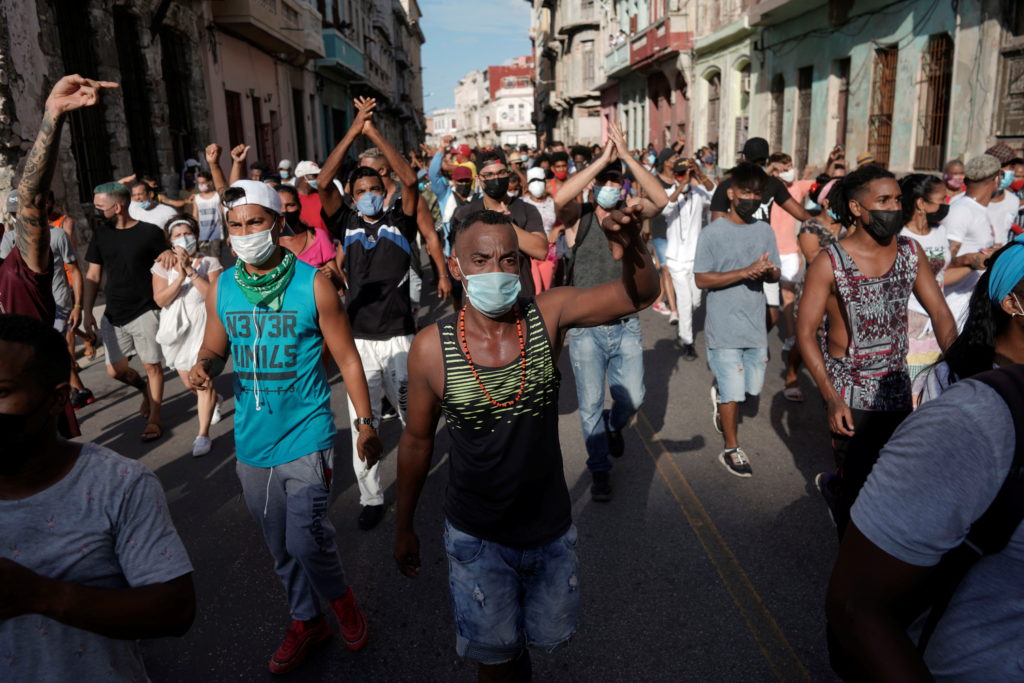
Biden’s White House, in a statement on Monday, accused the Cuban government of “enriching themselves” without proof and urged leaders to hear the cries of the people.
“We stand with the Cuban people and their clarion call for freedom and relief from the tragic grip of the pandemic and from the decades of repression and economic suffering to which they have been subjected by Cuba’s authoritarian regime,” he began.
“The Cuban people are bravely asserting fundamental and universal rights. Those rights, including the right of peaceful protest and the right to freely determine their own future, must be respected. The United States calls on the Cuban regime to hear their people and serve their needs at this vital moment rather than enriching themselves,” Biden added.
President Díaz-Canel, who was on the streets of Havana himself, encouraged the counterprotests but criticised what he called American involvement and a targeted “agenda”.

Díaz-Canel, in a televised address, charged for Cuba’s autonomy as an independent nation, and its decision to build on communism be respected.
“We demand that the sovereignty and self-determination with which we Cubans have accepted to build socialism be respected. The people came out to defend the revolution. We never encouraged violence among Cubans,” he said.
He also lobbed heavy scrutiny on the Organization of American States’ (OAS) silence on the embargo, particularly in light of the June resolution at the United Nations passed by 184 countries to end the US blockade on Cuba.
“The OAS has been empowered and trained to play its role in unconventional warfare. Why has it not been concerned about the negative effects of the blockade on Cubans?” Díaz-Canel asked.
Díaz-Canel’s sentiments echoed among throngs of Cubans who demonstrated in defence of his government.
Even amidst the complex epidemic besieging the country, Cubans from all corners of the country expressed a staunch rejection of the “cowardly attacks” by the enemies of the revolution to generate social chaos.
Protests in Havana started around 3:00 pm and fizzled out nearly five hours later, as some protesters gave up after security forces thwarted their attempt to reach Revolution Square.

Cuba has been experiencing a worsening economic crisis for two years, which the government blames mainly on US sanctions and the pandemic, while its detractors cite incompetence and a one-party system.
A combination of sanctions, inefficiencies and the pandemic has shut down tourism and slowed other foreign revenue flows in a country dependent on them to import the bulk of its food, fuel and inputs for agriculture and manufacturing.
The Cuban economy contracted 10.9 per cent last year, and two per cent through June 2021.
The resulting cash crunch has spawned shortages that have forced Cubans to queue for hours for basic goods throughout the pandemic. Cuba has begun a mass vaccination campaign, with 1.7 million of its 11.2 million residents vaccinated to date and twice that many have received at least one shot in the three-shot process.
Still, the arrival of the Delta variant has prompted cases to surge, with health authorities reporting a record 6,923 cases and 47 deaths on Sunday—twice as many as the previous week.
Hospitals in the worst affected province have been overwhelmed.



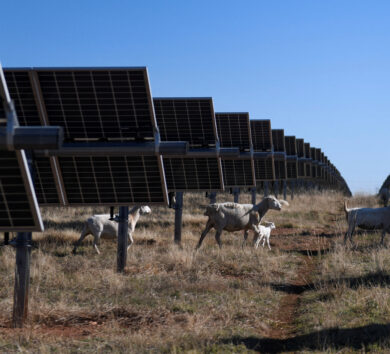
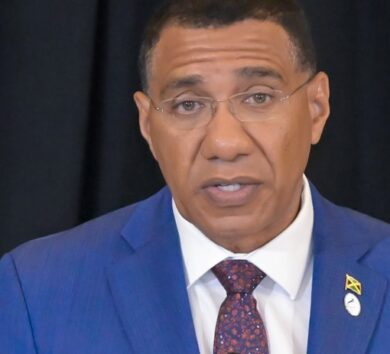
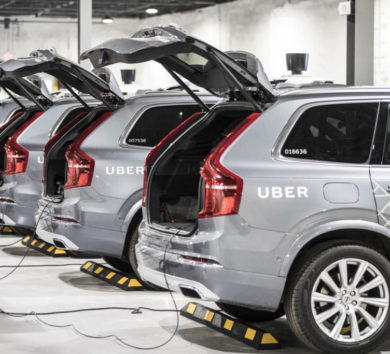
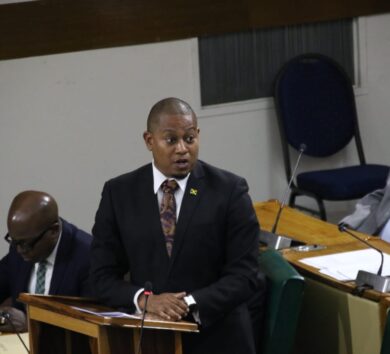
Comments